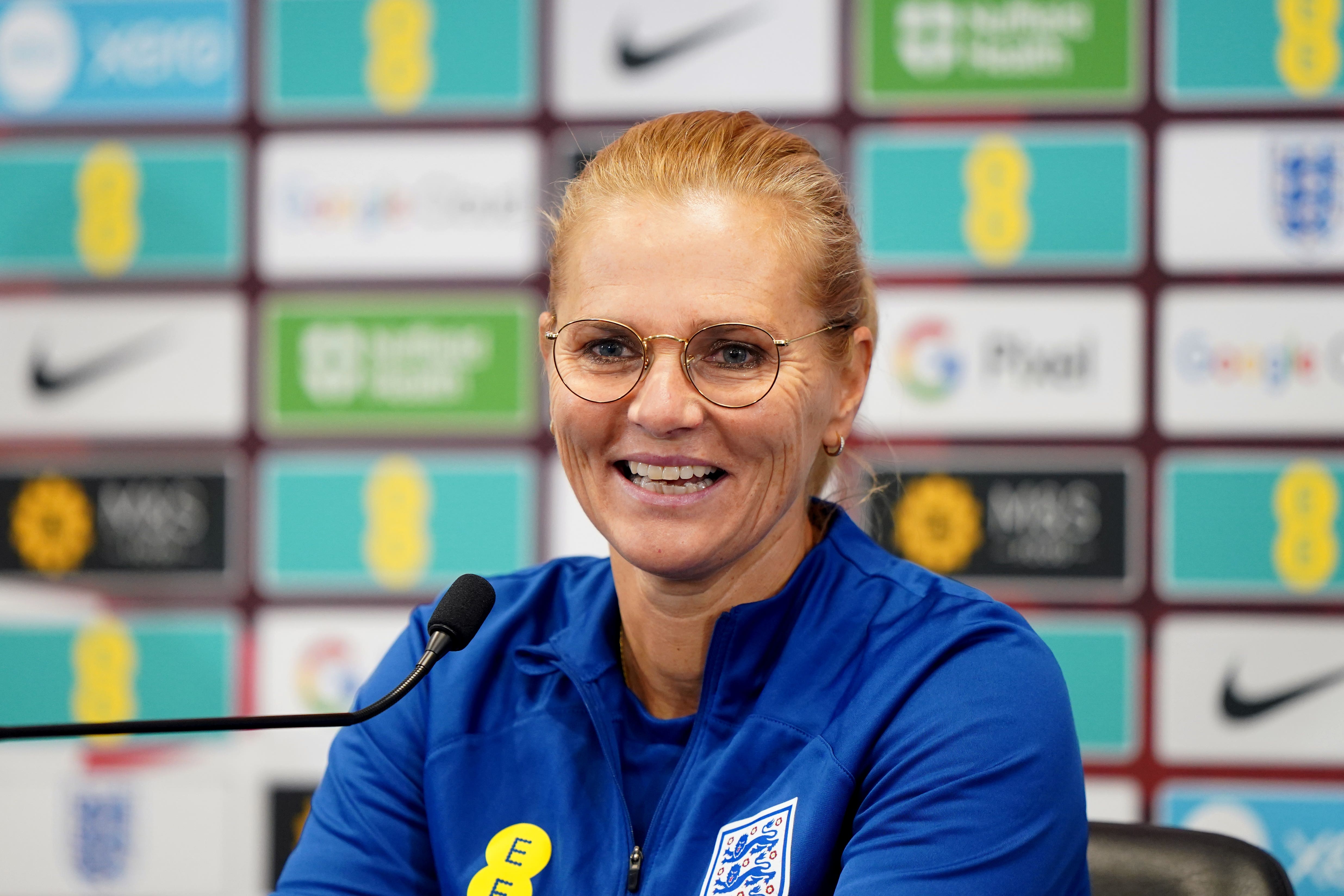WSL and Championship players to benefit from designated female health reps
An existing member of staff at each of the 24 clubs will be appointed and receive specialised training.

Women’s Super League and Championship players will benefit from access to designated female health representatives as part of a new initiative heralded by England boss Sarina Wiegman.
An existing member of staff at each of the 24 clubs will be appointed and receive specialised training to “establish leadership and accountability for embedded and sustainable support of female player health.” says the Football Association.
The FA have also rolled out a further online course which they claim is the “first ever national governing body-mandated training on female-specific health and plan to release new guidelines around pregnancy and postnatal care, menstrual cycle health and pelvic health in 2024.”
Wiegman, speaking in Spain ahead of the Lionesses’ international friendly against Italy on Tuesday, said: “We’re really happy to see that. It’s really good, (and) it’s also very necessary.
“It has been said all the time, there needs to be more research about women in sport and more support too, and this is another step in the right direction in that case.
“I think it’s really good and we have to keep doing research, which will take time with the outcomes of course, but keep supporting it too to make it the best for women’s sport and keep growing the game also.”
England midfielder Keira Walsh, who plays club football with Barcelona, hoped the move would inspire other domestic leagues to take similar action.
She said: “It’s really important and I think, because I play in the Spanish league now, seeing where the FA and the WSL is going and kind of being at the forefront and leading on that is really nice to see.
“Ultimately, I think that the support the FA are showing for women athletes is really good, and hopefully it will continue that way.”
The programme is a partnership with UK-based women’s sport health organisation The Well HQ, whose collaboration with the leagues led to the commissioning of a report entitled ‘The State of Play Project’, which gathered insights from players and support staff in the professional game from 101 player surveys, 34 player interviews, 19 support staff surveys and 41 support staff interviews.
It also follows findings from the independent review into women’s football, led by ex-England international Karen Carney and released last July, that noted the inquiry “received substantial evidence around the gap in research on support for female athletes, both physically and psychologically, in a professional football environment”, highlighting a 2021 study in Women’s Sport and activity journal noting that just six per cent of sport exercise and science research involves only women.
Failure to address this issue will undermine the credibility and quality of the sport going forward.
Carney’s review demanded those gaps “Must be addressed urgently. It is not acceptable that players are exposed to this additional level of risk relating to their physical health, and the game needs to do better to understand why this is the case.
“Failure to address this issue will undermine the credibility and quality of the sport going forward.”
The inquiry, whose 10 recommendations were approved by the government in December, also “identified the need to equip the women’s game workforce with the knowledge and skills to better understand female-specific health issues” and called on the FA to “to continue investing in this research, and to create a centrally funded unit to prioritise the development of even more insight in this space.”
Bookmark popover
Removed from bookmarks